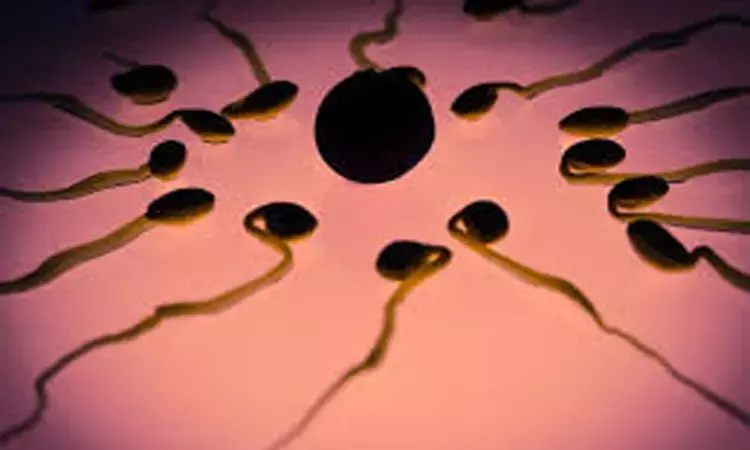- Home
- Medical news & Guidelines
- Anesthesiology
- Cardiology and CTVS
- Critical Care
- Dentistry
- Dermatology
- Diabetes and Endocrinology
- ENT
- Gastroenterology
- Medicine
- Nephrology
- Neurology
- Obstretics-Gynaecology
- Oncology
- Ophthalmology
- Orthopaedics
- Pediatrics-Neonatology
- Psychiatry
- Pulmonology
- Radiology
- Surgery
- Urology
- Laboratory Medicine
- Diet
- Nursing
- Paramedical
- Physiotherapy
- Health news
- Fact Check
- Bone Health Fact Check
- Brain Health Fact Check
- Cancer Related Fact Check
- Child Care Fact Check
- Dental and oral health fact check
- Diabetes and metabolic health fact check
- Diet and Nutrition Fact Check
- Eye and ENT Care Fact Check
- Fitness fact check
- Gut health fact check
- Heart health fact check
- Kidney health fact check
- Medical education fact check
- Men's health fact check
- Respiratory fact check
- Skin and hair care fact check
- Vaccine and Immunization fact check
- Women's health fact check
- AYUSH
- State News
- Andaman and Nicobar Islands
- Andhra Pradesh
- Arunachal Pradesh
- Assam
- Bihar
- Chandigarh
- Chattisgarh
- Dadra and Nagar Haveli
- Daman and Diu
- Delhi
- Goa
- Gujarat
- Haryana
- Himachal Pradesh
- Jammu & Kashmir
- Jharkhand
- Karnataka
- Kerala
- Ladakh
- Lakshadweep
- Madhya Pradesh
- Maharashtra
- Manipur
- Meghalaya
- Mizoram
- Nagaland
- Odisha
- Puducherry
- Punjab
- Rajasthan
- Sikkim
- Tamil Nadu
- Telangana
- Tripura
- Uttar Pradesh
- Uttrakhand
- West Bengal
- Medical Education
- Industry
Advanced sperm selection system signals breakthrough in assisted reproduction, reveals research

An advanced sperm selection system for men experiencing sperm with low motility has been announced by scientists at City University of Hong Kong (CityUHK).
The research, published in Med under the publisher Cell Press, indicates that
in samples with only 1% live sperm, the average live-sperm percentage can be elevated to 76% after selection. The success rates of fertilisation, cleavage, early embryos and blastocysts were also significantly elevated.
The research outlines the benefits of high-throughput, non-invasive sperm selection via their energy metabolites, selecting live sperm from immotile sperm samples with over 90% accuracy, and drastically improved fertilization outcomes for patients with total asthenozoospermia.
The single-cell screening/selection system, called BLASTO-chip, is based on microfluidic droplet technology and transformable hydrogel material. The system can achieve automatic high-throughput, label-free selection of sperm, bringing hope to patients with asthenozoospermia, an infertility condition in which a man produces sperm with low motility.
Cell selection usually relies on using proteins or other molecules either on the cell surface or inside the cell as labels. However, the application of cell labels is limited in certain scenarios, making it impossible to identify specific cell types (e.g. circulating tumour cells and stromal stem cells), and the added markers for the labels may interfere with cell activity.
Led by Michael Yang, Yeung Kin Man Chair Professor of Biomedical Sciences at CityUHK, in collaboration with cross-disciplinary teams in China, the team utilised microfluidic droplet technology and transformable hydrogel material to analyse the metabolic activity of individual cells, effectively isolating and enriching specific cell populations. Sperm selection for assisted reproduction is the first application of the BLASTO-Chip system.
Sperm selection, a critical step in assisted reproductive technology, is usually based on simple physical parameters, such as morphology or motility. Owing to extremely poor or completely absent sperm motility in patients with asthenozoospermia, the current technology can only "blindly select" potentially live sperm based on their morphology for subsequent fertilisation. The fertilisation rate for such blind selection is only 10–20%, compared to over 80% for standard sperm samples.
Therefore, there is a clinical need for improved sperm selection technology. As the selected sperm will be used for subsequent fertilisation, the improved technology must be label-free and intact. It is a significant technical challenge to detect biochemical activity without invasive procedures or causing damage to the sperm.
“We utilise microfluidic droplet technology to encapsulate individual sperm in droplets. The more vigorous sperm produce acidic metabolic substances through respiration, which promotes the transformation of the droplet into the hydrogel, achieving the goal of screening high-quality sperm,” said Yang.
Xianjin Xiao from Huazhong University of Science and Technology, and co-corresponding author of the paper, published in Med, says the project combines novel bioanalytical techniques and innovative biomaterials with cell physiological activity to achieve an automated, high-throughput, label-free sperm selection process. It fills an unmet medical need and has significant clinical potential.
Yang adds that the platform has been successfully applied to deterministic single-cell encapsulation, including high-throughput single-clone selection, and adipose stem cell isolation and enrichment.
Taking advantage of the development opportunities presented by the Guangdong-Hong Kong-Macao Greater Bay Area International Science and Technology Innovation Center, the team aims to complete clinical validation as soon as possible to bring the product to market and contribute to human health.
References: aoqin Mu 7, Xiaoyu Zhou 7, Longjie Li 7, Xiaowen Liu, Xu Wen, Lei Zhang, Bei Yan, Wei Zhang, Kejun Dong, Hao Hu, Yangwei Liao, Zhengxin Ye, Aimin Deng, Yuan Wang, Zenghui Mao, Mengsu Yang, Xianjin Xiao 8 Open Access Published: April 11, 2024 DOI:https://doi.org/10.1016/j.medj.2024.03.008
Dr Kamal Kant Kohli-MBBS, DTCD- a chest specialist with more than 30 years of practice and a flair for writing clinical articles, Dr Kamal Kant Kohli joined Medical Dialogues as a Chief Editor of Medical News. Besides writing articles, as an editor, he proofreads and verifies all the medical content published on Medical Dialogues including those coming from journals, studies,medical conferences,guidelines etc. Email: drkohli@medicaldialogues.in. Contact no. 011-43720751


